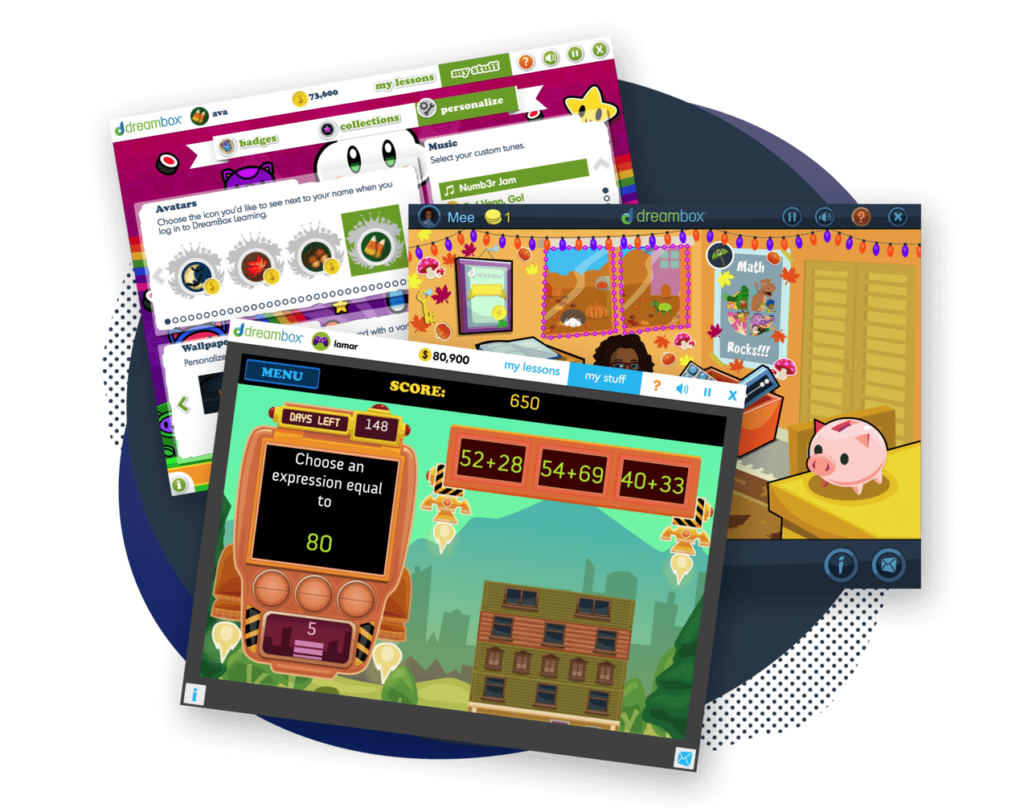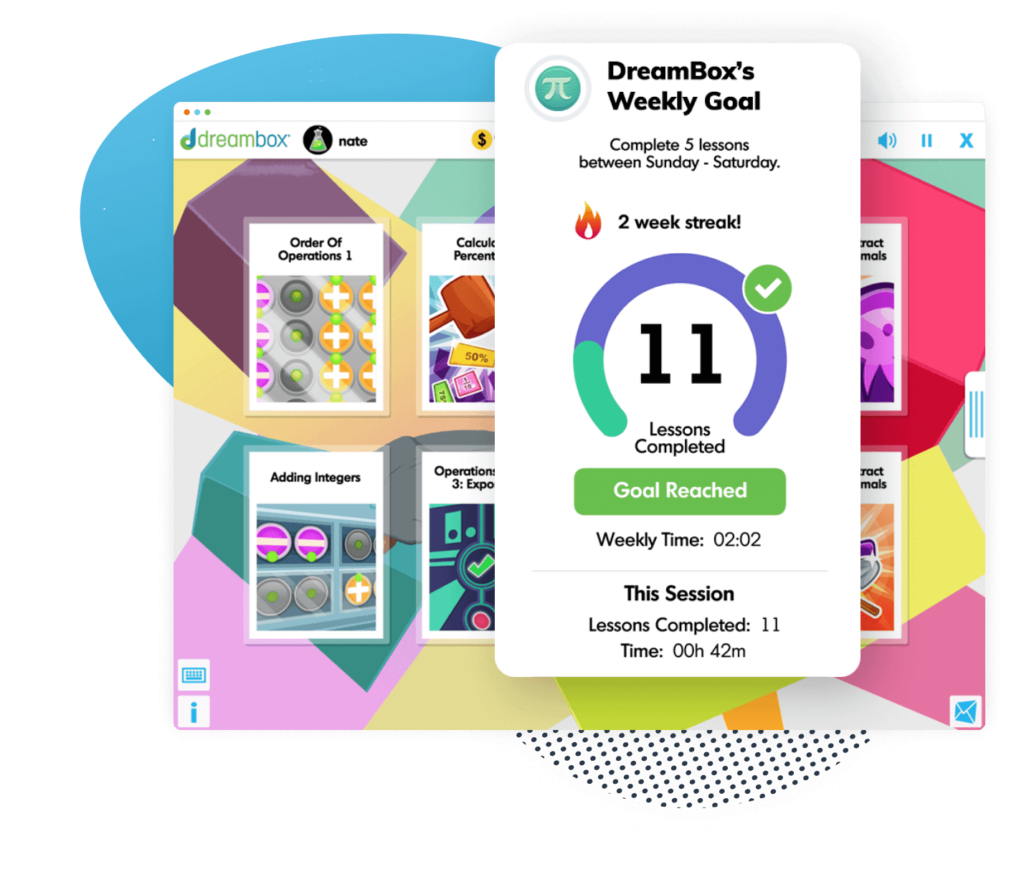How to Prevent the Summer Slide
Worried about the ‘summer slide’? These activities help prevent summer learning loss by keeping kids engaged all summer long!

Author
Katie Wickliff
Published:
Oct 2024

Key takeaways
- • Summer learning loss refers to the academic skills and knowledge lost during summer vacations
- • The extent of summer learning loss is variable, but most students experience some loss during lengthy breaks
- • Parents and caregivers can facilitate meaningful activities to keep kids learning
After months of working hard and following a schoolday routine, many kids (and their parents!) welcome the summer holidays. However, should kids completely forget about academic learning until the fall? This article explores what summer learning loss is and whether parents and caregivers should be concerned about the dreaded ‘summer slide.’ We also include plenty of activities to keep kids learning while still having summer fun.
Table of contents
What is Summer Learning Loss?
Summer learning loss, nicknamed the ‘summer slide,’ refers to the significant loss of academic skills and knowledge during the extended school break. Like many schools in the United States and Canada, students in countries with lengthy summer vacations are most concerned about the potential for lost learning.
The concept of summer learning loss has interested researchers for well over 100 years. More recently, parents and caregivers have also become concerned about the summer slide, with many wondering if they need to maintain a rigorous academic schedule during the summer–and how they can keep it up between work, parenting, and household duties.
As a former elementary teacher and parent of two school-aged children, I understand that pressure. For many families, the start of summer vacation means the start of more work for the parents! Feeling like you need to drill your kids on their math facts daily or hound them about writing prompts can feel like a large burden. But is summer learning loss as significant as widely believed?
Turn math into playtime with DreamBox Math
DREAMBOX MATH
Get started for FREE today!

Is the “Summer Slide” Real?
The results from research on summer learning loss are mixed. Some studies have shown that students do experience some summer learning loss, but the extent of the loss dramatically varies across age, grade, academic subject, and family income levels. While researchers have yet to come to a consensus about the variables that contribute to the summer slide, the majority of research indicates that some summer learning loss occurs for most students
What Skills Does Summer Learning Loss Affect?
According to some recent studies, students display lower test scores in math and reading after the summer break, with math scores typically showing a larger drop than reading scores. Indeed, unless I am actively looking for ways to practice math with my own children over the summer, I notice that some of their math skills are a little rusty when September rolls around.

The math program that drives results
Get started today!
DreamBox adapts to your child’s level and learning needs, ensuring they are appropriately challenged and get confidence-building wins.
7 Ways to Prevent Summer Learning Loss
1. Create a Summer Routine
At Dreambox, we believe that learning shouldn’t end just because summer begins! However, summer vacation provides unique opportunities for kids to learn differently than they might during the school year. Read on for several of our best tips for preventing the summer slide.
2. Focus on Math Skills
Since math knowledge is particularly susceptible to the ‘summer slide,’ children should find time to practice these skills regularly. However, this doesn’t have to mean worksheets and flashcard drills! In fact, summer provides a unique opportunity to connect math with the real world. Show your kids that numbers are everywhere with activities like:
- Gardening: Depending on your child’s age, they might determine the area of a garden box, how many square feet of soil that garden box needs, or how many rows and columns of plants can fit in your space. Have your kids measure their plants each week and plot them on a graph–they’ll be amazed at how much their garden grows in a short time!
- Baking: Cooking with your child teaches them about fractions and measurement. Measuring cups and spoons allows kids to concretely see that a ¼ cup is smaller than ⅓ cup, for example.
- Math games: summer means more time for games, and game based learning is a great way to help practice math skills while having fun. Our family favorites include Sum Swamp, Money Bags, and Rummikub. High quality math apps and online math games engage kids while sharpening their skills.
3. Join a Summer Reading Challenge
Many public libraries hold summer reading challenges–rewarding reading with fun prizes or activities. If you don’t have a public library nearby, why not create your own challenge? Our family loves the free reading charts from the blog Everyday Reading. You can print the charts at home or order an oversized version from a copy store.
4. Listen to Audio Books
If you have travel plans this summer, listening to an audiobook in the car is a great way to pass the time and enjoy stories as a family. Audiobooks are available for purchase, but most libraries offer a wide variety—you just might have to wait for the title you want.
5. Document Summer Fun
Writing often is a great way to keep your child’s brain engaged, but they don’t need to write essays to reap the benefits! Some ideas include keeping a diary of summer activities, recording vacation memories, writing captions in a scrapbook, and sending postcards to friends.
6. Encourage Creativity
Creativity comes in many forms: by drawing, coloring, crafting, taking photos, or collaging favorite shapes, kids expand their knowledge and build their confidence. During the summer, kids might have more time to practice a musical instrument or take part in a community play.
7. Explore Their Interests
Kids are curious about the world, and summer vacation is the perfect time to dive deeply into topics they are interested in—not just the subjects they “have” to learn during the school year. You can adapt project-based learning to your child’s individual learning style and your family’s summer schedule. In project-based learning kids use critical thinking to answer a complex question or solve an intricate problem. This type of learning requires students to delve deeply into a meaningful topic, and might be a perfect challenge for your child.
FAQs About Summer Learning Loss
Studies show that most students lose at least some learning over the summer, with the biggest losses in math and reading.
You can stop the summer slide by helping your child continue to learn through fun, meaningful activities. Activities for Summer Learning Loss Prevention include engaging in real-world problem solving, joining a reading challenge, and playing games.
Take at home math practice to the next level
Empowering parents and educators to make math practice more impactful. Plus, your kids will love it.


